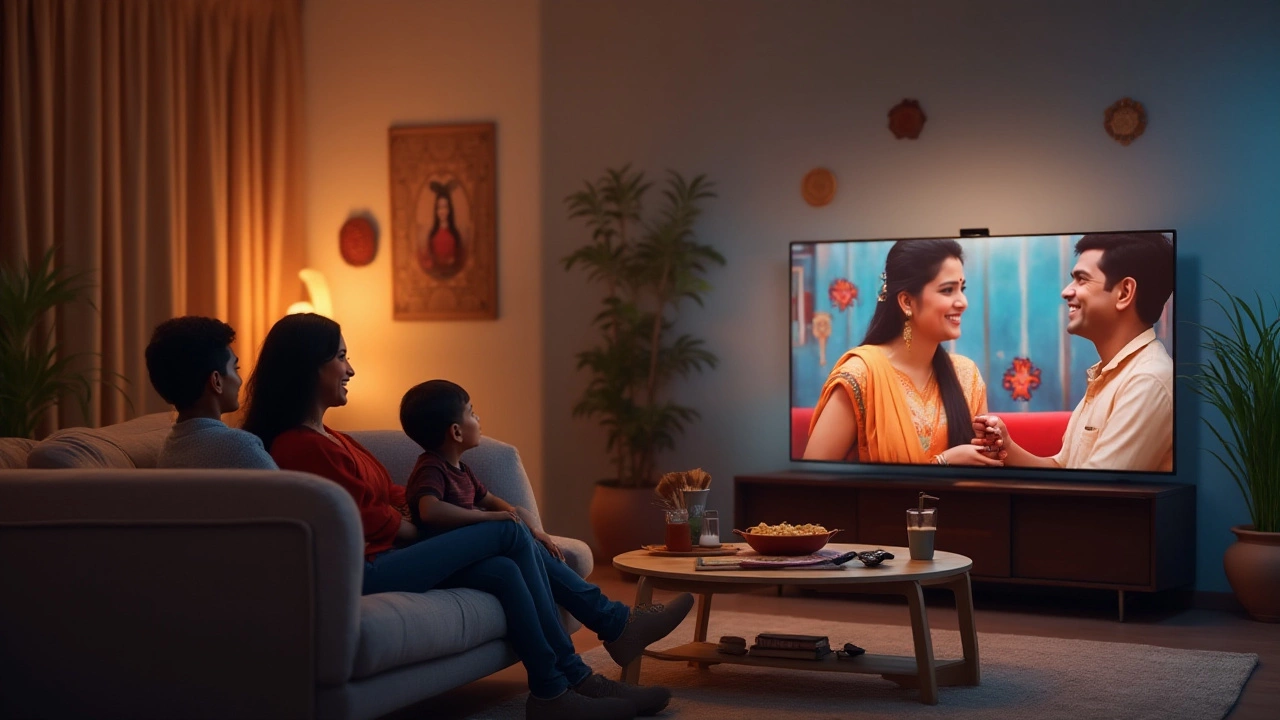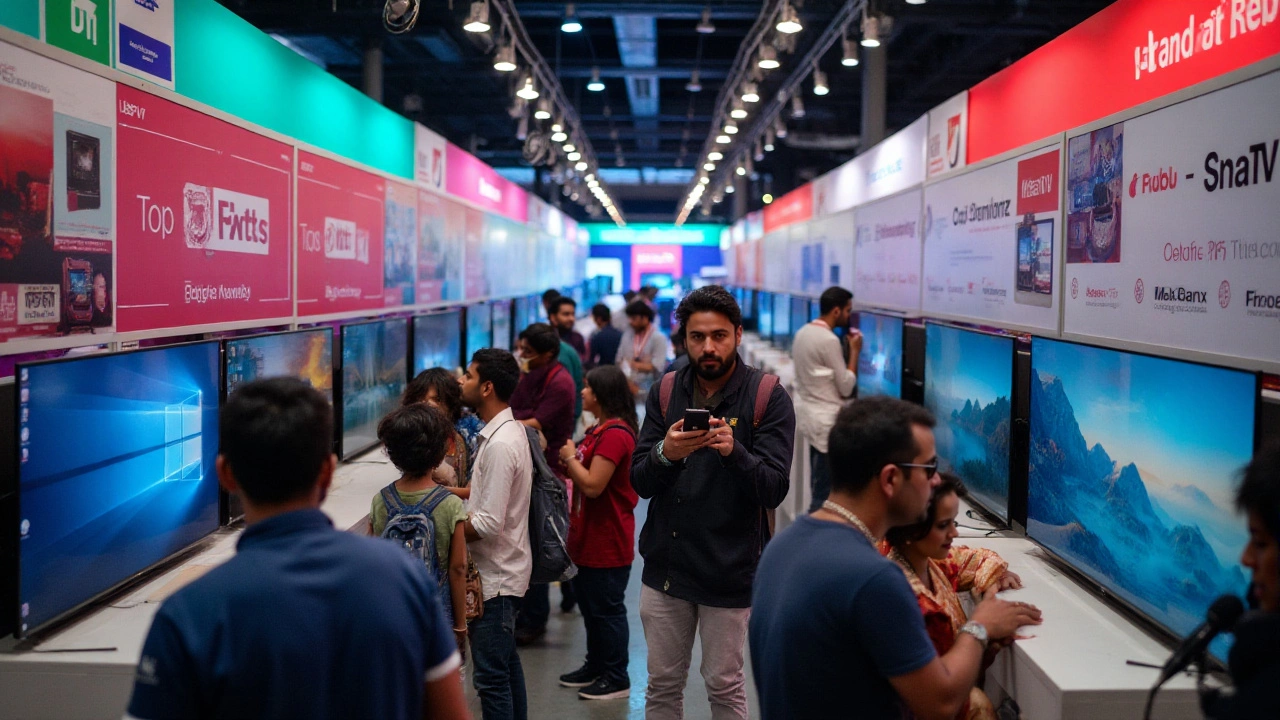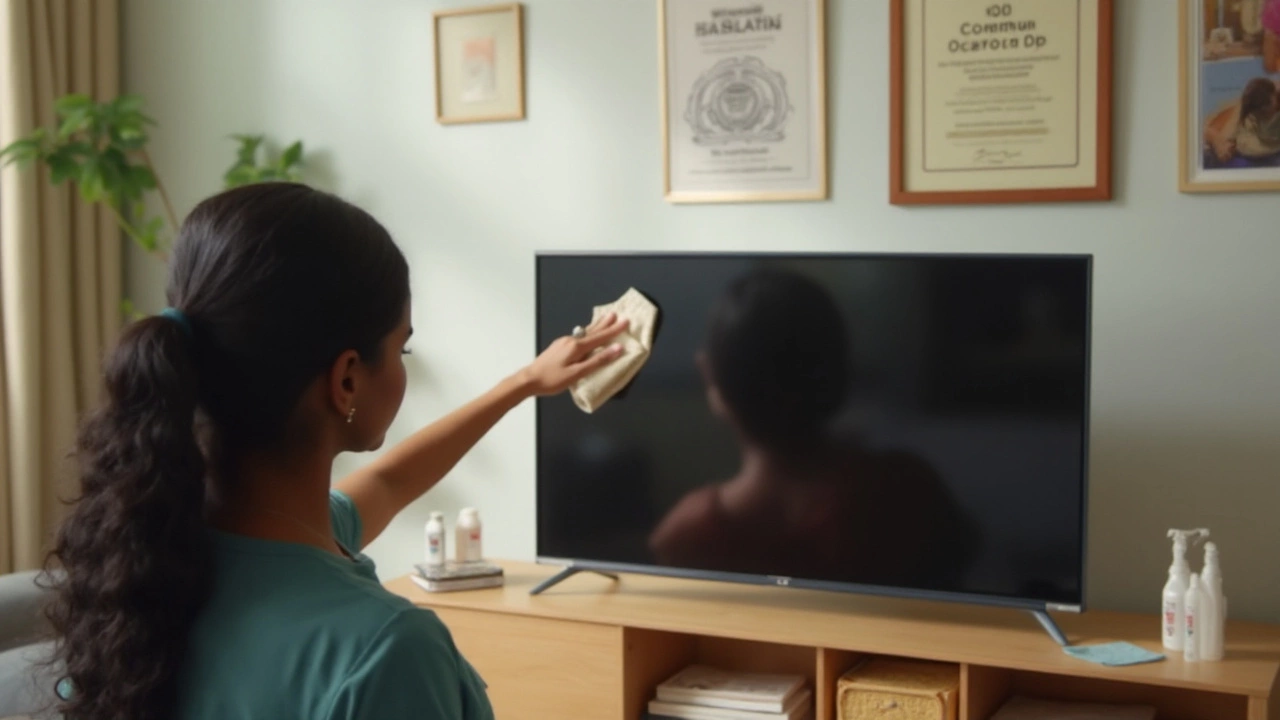
In today's fast-evolving world of technology, choosing the right TV brand can feel like navigating a complex maze. TVs are more than just screens; they're the centerpiece of the modern viewing experience, and not all are created equal. Reliability is crucial, as a trustworthy set can save you countless headaches and expenses down the road. This exploration into the most reliable TV brands of 2025 aims to shed light on the options that are likely to provide the best long-term satisfaction.
With advancements in both technology and manufacturing, some brands have stood out in providing quality products that withstand the test of time. We'll look into what makes a TV brand truly reliable, diving into aspects from build quality to after-sales support. Prepare to discover which of your favorite brands make the cut and why they might be your best pick for a new purchase.
- Key Factors for TV Reliability
- Top TV Brands in 2025
- Consumer Reviews and Expert Opinions
- Tips for Extending TV Lifespan
Key Factors for TV Reliability
Understanding what makes a TV reliable is essential for making an informed decision. One of the first things to look at is build quality. Premium materials and craftsmanship generally indicate a television that will endure the hustle and bustle of daily life. Brands that are known for rigorous testing and attention to detail stand out in this regard. The next time you are shopping for a new set, take a moment to feel the solidity of the construction. Does it give the impression that it could withstand a little impact or the occasional tumble? The touch and feel of physical buttons, the sturdiness of the stand, and the snug fit of ports all contribute to a first impression of reliability.
Another cornerstone of reliability is the TV's software. As TVs become smarter, they essentially become computers with screens. Software updates are indispensable as they fix bugs, introduce new features, and enhance security. Brands that have a reputation for timely and consistent updates are worth considering. The last thing any owner wants is an outdated smart TV with an app ecosystem that grows increasingly incompatible or insecure over time. Checking user forums and reviews for feedback on software can be incredibly enlightening in this aspect. Users often share their experiences about the ease of use and frequency of updates offered by various manufacturers.
It's not all about what's housed inside, though. The company behind the screen plays a pivotal role in defining reliability too. Responsive and helpful customer service can transform a potentially frustrating issue into a minor setback. Have a look at how each brand handles requests for repairs, exchanges, or troubleshooting. Numerous surveys highlight customer satisfaction scores as a vital indicator of post-purchase experience. Brands with excellent warranties and return policies instill confidence, as they signal the manufacturers' faith in their products.
While it's easy to overlook, energy efficiency is an underlying factor that influences reliability. TVs that are designed with energy-saving features tend to run cooler, which can prolong the lifespan of internal components. Smart TVs that boast high energy ratings are often engineered with modern chipsets and circuitry meant to be both power-conscious and powerful. Reduced energy consumption leads to less wear on parts, which translates into fewer fail points over time. This can be especially relevant for heavy watchers who have the television on for hours on end. The importance of this attribute is growing as customers become more conscious of both the environmental and economic impacts of their choices.
In an insightful moment, tech historian James Burke once wrote,
"To fully appreciate how one event may lead to another, one needs to trace the connection."This reflects well on the concept of TV brand reliability. Each feature, every decision from the engineers to the sales team, and the culture of the company as a whole can determine how a customer experiences the final product. The cumulative effect of these elements shapes the reputation of a brand over time. Investigating each aspect, therefore, helps to see the bigger picture of what makes a TV a wise investment.

Top TV Brands in 2025
When it comes to selecting a smart TV, the brand can make all the difference. In 2025, certain companies have risen above the rest, earning a reputation for not just sleek designs but also for their enduring reliability. Sony, Samsung, LG, and TCL are among the top contenders in the realm of smart TVs. These brands have consistently demonstrated excellence in technology innovation while maintaining a strong focus on durability and user satisfaction. Each of these names has its unique strengths. Sony, for instance, is well-regarded for its impeccable picture quality, thanks to their pioneering work with OLED technology. Samsung, always at the cutting edge, boasts exceptional Quantum Dot displays that offer vibrant and true-to-life colors. Meanwhile, LG’s continued investment in AI-enhanced features ensures that their smart TVs are user-friendly and ahead of the curve. TCL, though sometimes seen as a budget option, provides remarkable value with robust platforms like Roku TV integrated into their sets.
Each of these companies has cultivated strong followings, not only because of their cutting-edge technology but also due to their commitment to enhancing the viewing experience year after year. According to a recent survey by CNET, Samsung took the lead in user satisfaction when it comes to 2025 TVs, with 92% of owners stating that their purchase met or exceeded expectations. "Samsung consistently pushes the boundaries of what's possible with TV technology," noted a CNET reviewer in a 2024 article. "Their investment in research and premium engineering sets them apart." Samsung's innovation isn't just skin-deep. The brand ensures longevity with robust build quality and offers extensive support and warranty services, often free of additional charge.
LG continues to emphasize the smart aspect of smart TVs by integrating AI technologies into their newer models. The integration of AI allows for better picture adjustments, voice-command capabilities, and personalized user experiences. This has made LG a favorite among tech enthusiasts who appreciate a smart home ecosystem that truly feels seamless. On the other hand, TCL, a brand that many initially considered an underdog, has gained a strong reputation for offering impressive performance without the high-end price. By collaborating with content providers and platforms, TCL TVs provide consumers with vast content libraries just a click away, a factor that enhances their reliability in content streaming.
In terms of picture quality, Sony has always commanded respect. Driven by innovation, their newest models provide cinema-like images with contrast-rich scenes and enhanced processing power. An intriguing trend is Sony’s collaboration with gaming giants to optimize their TVs for high-performance gaming, catering to a burgeoning market of gamers who demand top-tier graphics and responsive gameplay. Such partnerships not only expand a brand's consumer base but also ensure reliability under intense usage scenarios, meeting the expectations of one of the most demanding user groups out there.
Delving into consumer reviews, patterns suggest that these top brands maintain high ratings across key categories like picture clarity, sound systems, user interface, and durability. It's clear that informed buyers are valuing these features in their purchasing decisions. When choosing a TV, reliability comes from not just impeccable hardware but also the promise of continued software support. This is why these brands remain favorites; they ensure that as technology evolves, their sets remain functional and relevant, with updates that are timely and efficient. While the flashy specs are often what garner attention, it’s the reliability that keeps these TV brands in high regard among consumers globally.

Consumer Reviews and Expert Opinions
When it comes to choosing the best smart TVs, one can't overlook the wisdom of consumer reviews and expert opinions. The voice of the average user is often a reflection of the product's performance in everyday scenarios. People who have purchased and used these TVs provide insights that are unfiltered and candid, revealing the true essence of a brand's reliability. Many consumers highlight that brands like Samsung and LG are often praised for their picture quality and user-friendly interfaces. Meanwhile, Vizio and TCL have carved out a niche for being budget-friendly without sacrificing too much on quality. These insights are crucial because they allow potential buyers to gauge what living with a particular brand's TV is genuinely like.
Experts, on the other hand, bring a different perspective. They often focus on technical specifications, build quality, and long-term performance. Experts note that brands such as Sony deliver excellent color reproduction and sound quality due to their advanced processing technologies. In addition, they scrutinize the after-sales service quality, which is crucial for measuring a brand's reliability. A well-known tech journalist once remarked, "The best TV isn't just about picture quality but how well it complements your lifestyle and stands the test of time." Expert critiques are invaluable as they bridge the gap between technical prowess and practical usability.
For a holistic understanding, combining consumer and expert insights is vital. Through various forums and tech review sites, patterns emerge in feedback. For instance, a pie chart from a 2024 survey illustrates that over 60% of users rated Samsung as the most dependable for consistent software updates and durable hardware. Meanwhile, Sony led in the areas of color accuracy and audio performance. These stats underscore the specific strengths of each brand, helping potential buyers make more informed decisions. This two-pronged approach, blending anecdotal evidence with professional assessment, lends a more balanced view of the TV brand reliability.
| Brand | User Satisfaction (%) | Expert Rating (/10) |
|---|---|---|
| Samsung | 87% | 9 |
| LG | 82% | 8.5 |
| Sony | 85% | 9.2 |
| Vizio | 78% | 7 |
Both consumer reviews and expert loves for a product reveal the vulnerabilities that brand advertising often glosses over. They point out if software updates are timely, if customer service is responsive, and if the hardware can endure the challenges of daily use. Trusting these insights is key to avoiding brands that might promise the world but deliver frustrating experiences, leading to a lifetime struggle with malfunctioning features and quirky interfaces. As someone looking for a TV in 2025, it's prudent to balance both voices to grasp the bigger picture and ensure long-term satisfaction with your television choice.

Tips for Extending TV Lifespan
Maintaining your smart TV is crucial for ensuring it goes the distance, providing years of entertainment without the need for premature replacements. Start with the placement of your TV. Position it in a location where direct sunlight doesn’t hit the screen constantly. Continuous exposure to sunlight can degrade the display over time, leading to faded colors and reduced brightness. Dust can also be a stealthy enemy; it infiltrates the vents and settles on the screen, potentially overheating components. Therefore, routinely dusting around the TV and ensuring unblocked ventilation is vital.
Avoid habits that could stress the TV components. Keeping the brightness and contrast at maximum settings can be tempting for vivid visuals, but prolonged exposure to high settings may shorten the panel's lifespan. Instead, calibrate your settings to balance quality and endurance, adapting the brightness to the ambient light in the room. If your model supports it, employ the eco-mode feature, which automatically adjusts settings to save power and protect the screen.
Electrical surges are often underestimated threats that can severely damage your TV's circuitry. Using a surge protector is not merely an added layer of safety; it's an essential guard against voltage spikes caused by external factors like storms or internal ones like operational fluctuations in household electronics. Also, turning off your TV using the remote alone isn’t sufficient. It's wise to unplug it during long periods of inactivity or when there's a potential electrical storm.
"Electrical devices, including TVs, are best protected when unplugged during severe weather or not in use for long periods," suggests the energy-saving expert at the National Energy Foundation.
Regularly updating your TV’s software can significantly impact its longevity. Manufacturers often release firmware updates that not only enhance performance but also fix bugs that might cause the system to behave erratically. These updates could improve the TV’s efficiency, ensuring the longevity of both hardware and software components. Keeping your software in check will keep your TV running smoothly.
Ultimately, integrating these proactive strategies into your routine will not only extend the lifespan of your TV but also enhance the quality of your viewing experience. Attentiveness to details like position, maintenance habits, electrical protections, and software upkeep might seem trivial but are vital for the enduring performance of your TV set. Make these practices part of your regimen, and your TV will reward you with many years of reliable service and stellar entertainment.